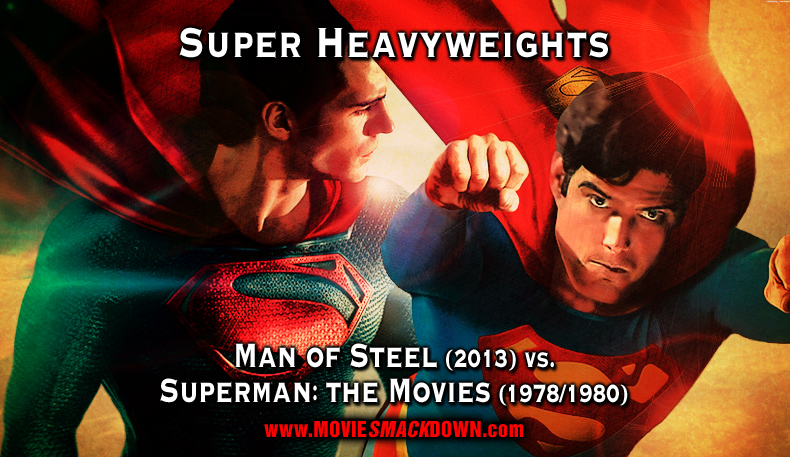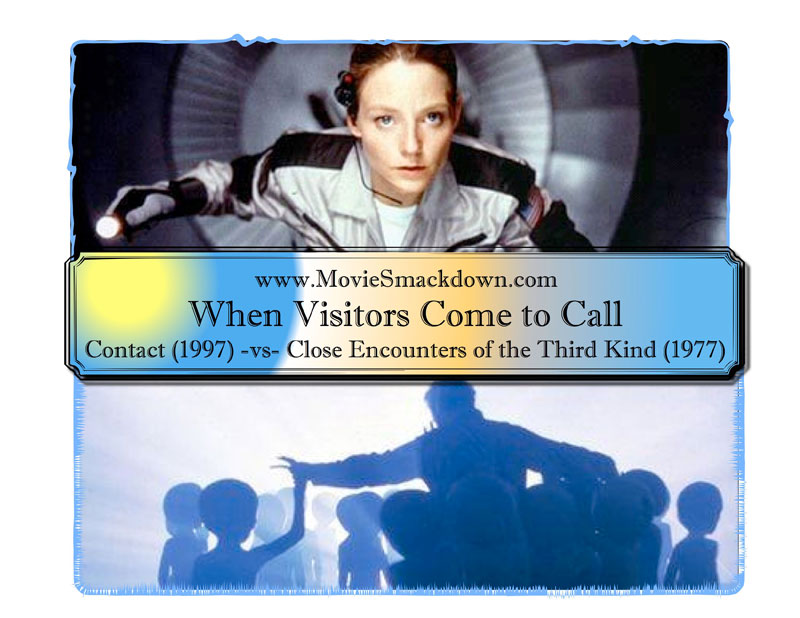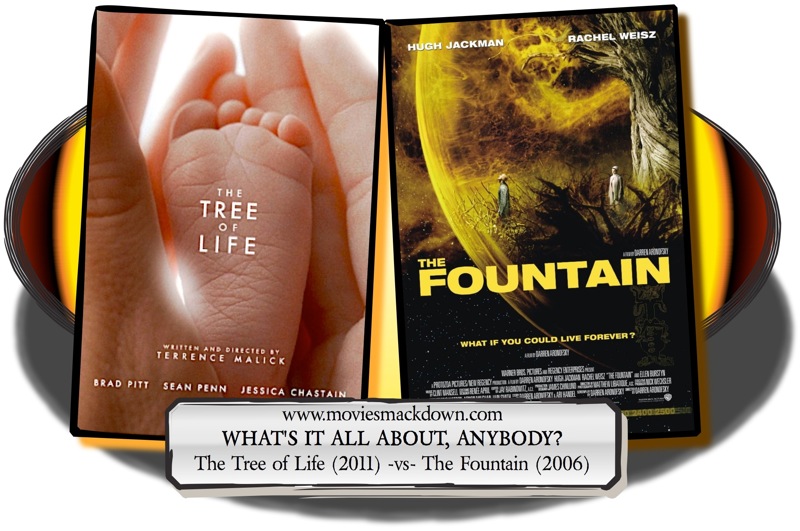 The Smackdown
The Smackdown
If a filmmaker sat down in a producer’s office and rambled on about prehistoric ape battles, Mayan/Judeo-Christian theology, homicidal computers, oncology miracles, cosmic fetuses, and Heaven-bound bubble spaceships, he’d probably be shown the door with directions to one of Hollywood’s many rehab centers. Yet “2001: A Space Odyssey” and “The Fountain” seem to embrace new narrative techniques that allow them to mix-match elements heretofore unseen in films. Both are pioneers in science-fiction, turning the genre on its head and seeing what comes out. Both also faced heavy criticism upon their release, with “2001” obviously having an edge of 39 years to be appreciated. On top of critics, the characters of both “2001” and “The Fountain” encounter faceless, automated, merciless antagonists: a robot and death.
[singlepic id=138 w=320 h=240 float=right]
The Challenger
Darren Aronofsky’s “The Fountain” follows one man through three times. In the past, Thomas Creo, a conquistador, is sent by the Queen of Spain to find the fabled Tree of Life in an attempt to save the Queen from death at the hands of the zealot The Inquisitor. In the present, Tommy Creo struggles to use a strange substance derived from a South American tree to cure his dying wife’s cancer. In the future, a bald Tommy travels in a bubble through space in order to take a gigantic tree holding the fading soul of his dead wife to Xibalba, the Mayan underworld which exists as a dying star surrounded by a nebula.  As the film cuts between each period, it’s important to realize the present is the heart of this film. As Tommy faces his wife’s deteriorating condition, he begins hiding his own fear of death in his fear of losing her. The other time periods mirror Tommy’s dilemma of becoming so fearful of death that he neglects his dying wife emotionally as he tries to conquer mortality. Aronofsky delivers some extraordinary visuals and directing here; there’s not a single scene in the movie that’s aesthetically uninteresting. This, while juggling multiple storylines and metaphors which organically reveal the film’s main point, which is not at all as epic and mystical as it first may seem. The film is really about the arrogance of denying death and eventually accepting one’s own death while mourning the death of loved ones. With a visually explosive climax scored to near perfection by Clint Mansell, “The Fountain” is a soft love story teasing big philosophical concepts with a lot of understated emotion.
[singlepic id=17 w=320 h=240 float=right]
The Defending Champion
Stanley Kubrick’s “2001: A Space Odyssey” is considered by many to be one of sci-fi’s most influential films. The film also takes place in three time periods. The first is the prehistoric ages, where packs of apes learn to use tools (to kill each other, naturally) after the arrival of a strange black monolith. The second is 2001, where the discovery of a black monolith on the Moon prompts a space voyage to Jupiter, during which astronaut Dave Bowman must face the deadly on-board computer HAL. The last is…beyond time, where Bowman exists beyond normal space and emerges as a embryonic star of sorts. Groundbreaking for its time in visuals and narrative, 2001 really looks down at being about any one thing. The highest tension results from Dave Bowman’s confrontations with HAL, his spacecraft’s computer which eventually attempts to kill Dave. Attempting to explain what 2001 is about is pointless. For the past four decades websites, books, and classes have all tried to decipher its meaning. Kubrick himself stated that he didn’t want to confine audiences to a pre-planned blueprint. Suffice it to say, “2001” is visually and philosophically engaging, raising questions such a man’s reliance on technology, his belief in God, and his evolution from ape to human.
The Scorecard
Some movies are too coy for their own good. Both “The Fountain” and “2001” play with audience expectations, leaving them to wade through multiple symbols, visuals, and metaphors to infer meaning from their films. While Kubrick is completely comfortable leaving audiences here, Aronofsky hedges away from utter ambiguity and gives his audience a love story which anchors the theme of mortality which “The Fountain” explores. On one level, Kubrick could be said to be braver. But audiences rarely have time to consider bravery while watching a film, nor should they have to. “2001” introduces a great many elements, some amazing themes, but fails to give a uniting anchor through which to experience them. Dave Bowman is the nearest thing approaching a main character, but his journey reinforces the mystery of “2001” whereas Tommy’s journey in “The Fountain” reveals the film’s mystery. Simply look at the film’s climactic moments. In “2001,” Dave Bowman travels through a Light-Bright tunnel, exists beyond time in a French aristocratic room of luxury, dies, and orbits the Earth as a fetus. In “The Fountain,” Tom arrives at the nebulous Mayan underworld too late to save his wife’s soul. Nevertheless, he hovers before the dying star at the heart of Xibalba and resigns himself to death just as it explodes. Now, whether or not “The Fountain”‘s climax is real or a figment of Tommy’s quest to finish his dead wife’s book, is irrelevant to the climax’s emotional point: Tommy accepts his death. Some may say that “2001” doesn’t require this, that it’s above it. But the argument can be made that there’s more creativity and entertainment in a film that respects conventions that have come before while breathing new life into them. There’s a difference between turning things on their head and decapitating those same things . While both can be appreciated for their efforts, only one film’s going to emerge as a more whole and concise piece ready to enlighten while entertaining…
And the winner…
The Decision
“2001: Space Odyssey” pioneered a new take on sci-fi films as a whole, discarding any previous narrative models and simply focusing on allegory and symbolism. However, it forgot characters. “The Fountain” may not develop Tommy and his wife, but it does provide the character with an internal struggle that focuses the fantastic elements toward the film’s thematic point. Thus whereas “2001” is a visual panorama handled by multiple symbols, “The Fountain” is a visual landscape serving to answer its character’s journey. “2001: Space Odyssey” is drowned out by “The Fountain.”




umm no… Nice review but 2001 destroys The Fountain. Seriously, I have thought so much about 2001 and its meanings but I have easily forgotten about The Fountain.
This one’s to Craig. The Fountain has absolutely not been forgotten since it’s release. It’s steadily grown a following, and it’s only been five years. When 2001 ccame out, it took well over ten before it gained a notable following. In my opinion, the two should not be compared at all until the fountain has been around for 39 years, itself. Then a true decision can be made. I consider the Fountain the be the single most beautiful movie ever made, and my best friend and critical accomplice considers 2001 to be the most brilliant. So, I get this view from both sides. YOU CANNOT COMPARE THE TWO YET. Let those near forty years pass, then watch the two again.
The Fountain is without a doubt much much better. I gives people insight in a moment of sudden revelation.
2001 ASO, although possibly pretending to be more complex and still being visually masterful, falls short of anything close.
2001 ASO has been around since 1968 and seems to get more praise as time goes on. It’s deep, thought provoking and unique. There will never be another film like it again. The Fountain was forgotten by most within a couple of years. Although a decent film, it just doesn’t compare to 2001.
Answer:
If a tree fell in space, would it make any sound?
Would it make any sense?
Yes, unless you’re stupid enough and not understand the meaning behind such an amazing movie!
I agree with Rodney about 2001. I enjoy your reviews, but highly disagree with this one. 2001 is, to me, the superior film. Only Contact and Close Encounters come close. Still, your reviews are enjoyable and very informative.
Wow, what a result. Talk about a boilover. I didn’t think anybody would allow 2001: ASO to lose out to any recent film. I may have to go back and revisit THE FOUNTAIN just to make sure I was as confused as I thought I was the first time I saw it.
Great review, by the way. Well argued points and a valid outcome, although I’ll have to make a more detailed response to this in due course!
I am glad to finally come across some intelligent discussion about the Fountain. Most of what I read/heard has been a simple panning of this gorgeous film on the grounds that the plot “didn’t make sense” (see Anthony Lane’s lane-brain review of it in The New Yorker). I also appreciated that you connected the Fountain to Space Odyssey. I did feel, however, that Aronofsky did not set out to compete with Kubrick, but to revisit and push the themes that Kubrick brought up. He definitely played explicitly with the visual elements of 2001, with Donovan the ape being the experiment for potential human progression, the bubble floating in space mimicking the fetus in space, and even Tommy’s nirvana like floating state, where he seems to reach a fetus-like simplicity. Circles were prevalent in the Fountain, from the ring too the bubble to the circle window with the nebulae in it, as they were prevalent in 2001. I will take me a few more viewings of the films back-to-back to really pick out how Aronofsky evolves the themes of 2001, but I certainly think this is an avenue worth pursuing.
Is “Fountain” simply a continuation of the 2001 narrative?
This movie is a masterpiece. The ones who can’t understand it need to live another 10 years before they will.. This piece is timeless, a classic. An Epic of awe.
Movies like this change the world..
Yep. That’s funny. I actually watched it again tonight too with a group of friends. It’s definitely a thinker. Was the future Tommy a narrative world of present Tommy or was it actually real? (Donovan after all did show results of age regression…). Either way, it’s hard to make a movie like this in our time because the visual technology is so abundant but the filmmaker’s here do something real special. Sure, its got some flaws; but its ambitous, moving, and beautiful to watch. The music is fantastic too!
Glad you liked it. When you rewatch it, note the Grand Inquisator’s map and all his talk and see if you can find out what Izzy’s really talking about if you haven’t already.
Tonight I watched “The Fountain” with great anticipation because of your very well-written Smackdown. I wasn’t disappointed. I think I was in exactly the right mood for it and really enjoyed being transported into this fascinating world. I nearly went insane, though, because the DVD player we were watching it on kept freezing and skipping, more or less throughout. I will actually watch it again because of that. (Why not? I’ve seen “2001: A Space Odyseey” a half-dozen times.) Is it better? Man, I’m glad I didn’t choose this Smackdown and that you did, Beau. I will say that it’s as good. At least that’s how it felt tonight. I hope more people comment on what this film is about and it moved them because this is not an easily forgotten one.
I’m so going to get killed for the decision here. LOL. But yes, I tried to account for the time differential with 2001 and that’s why I didn’t discuss HOW they stack up against one another visually, since of course The Fountain would win just based on technology.
But, in the end, “The Fountain” is just much more moving and stirring than “2001.” And I think first and foremost, before being coy or cute or groundbreaking or never-before-ish, it has to be a good film about characters who desire something and are moving towards it, no matter how fantastical and unreal it may be. I just don’t get that from “2001” as a film; as a philosophical masterpiece, sure. But not as a film.
But yeah, I debated this because I know how fond “2001” is in many people’s minds.
There’s a shocker ending for you! I will have to see “The Fountain” now for sure. Maybe the thing about “2001: A Space Odyssey” is that if you actually saw it in 1968 it was a mind-blowing, life-altering, cinematic-shattering experience, but if you see it in 2007, it’s just another DVD. Anyway, I have my memories!